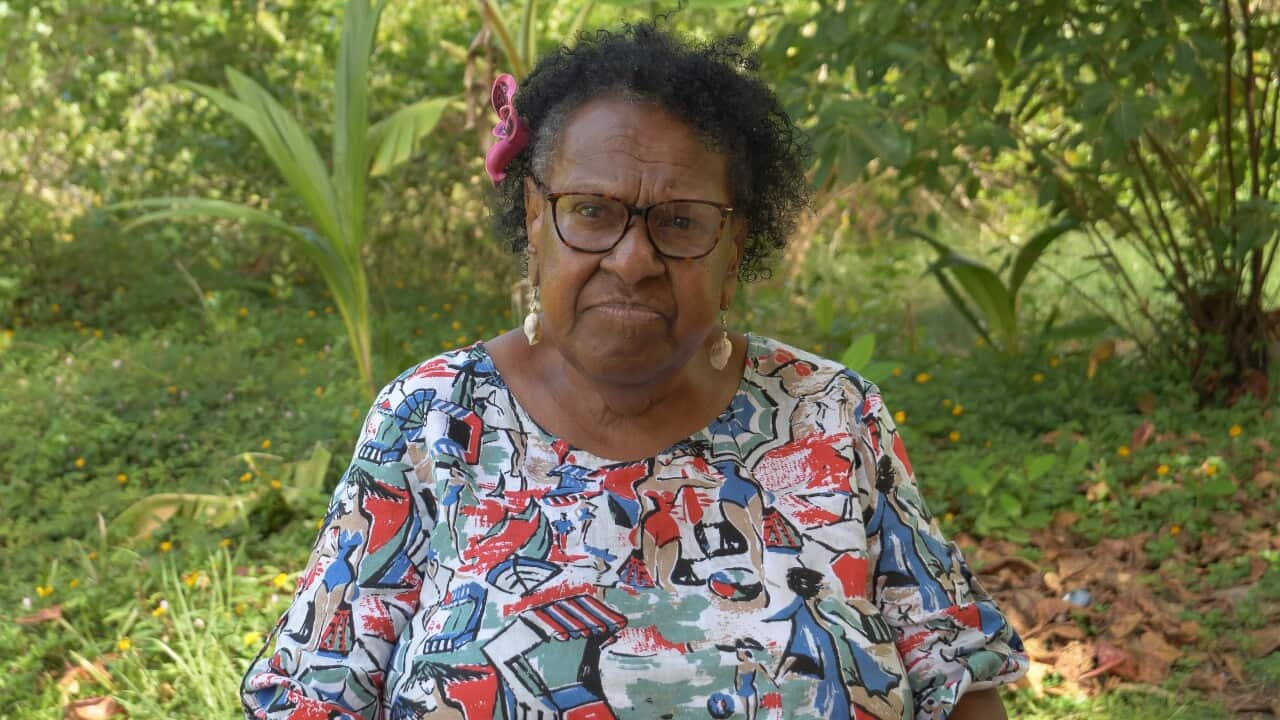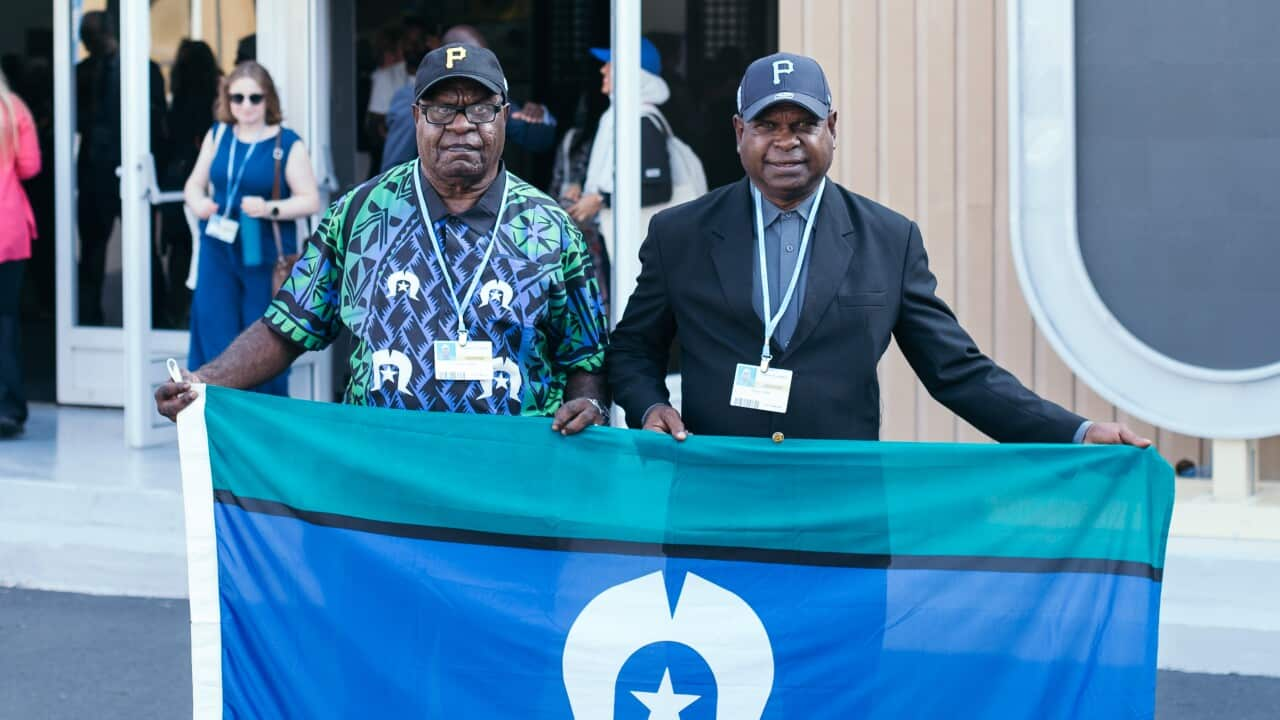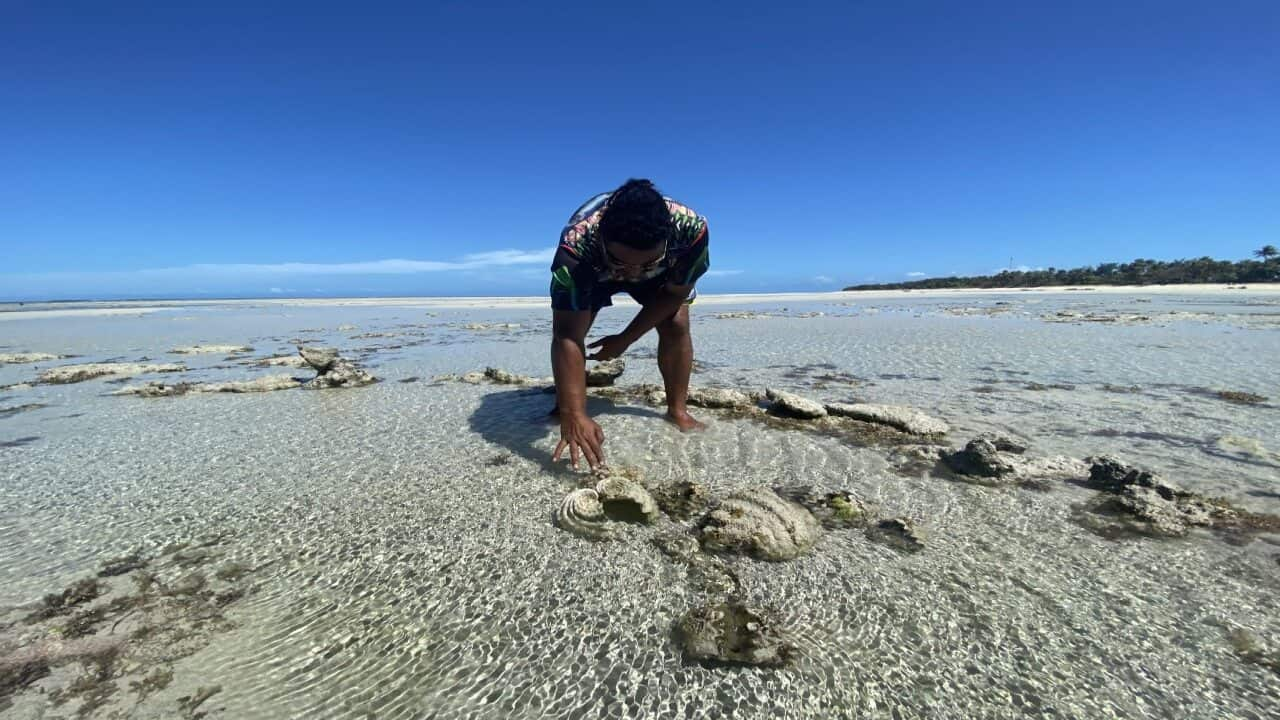Over a few decades, Aunty McRose Elu has seen her ancestral lands inundated with water.
Dr Elu was born on one of the outer islands of the Torres Strait – the low-lying Saibai Island, 4km south of Papua New Guinea.
"As you go through the area when you fly over it's very frightening," Dr Elu told AAP.
"Now you can see more water than land but people live there."
Dr Elu is part of the first climate class action brought by Australia's First Nations people.
Led by Uncles Pabai Pabai and Paul Kabai, they're arguing the Commonwealth owes a duty of care to Torres Strait Islanders to take reasonable steps to protect them from the harms caused by climate change.
Mr Pabai and Mr Kabai launched the federal court action in 2021, faced with rising sea levels and fearing their communities could become Australia's first climate refugees.
The court held on-Country hearings on Badu, Boigu and Saibai islands in 2023, while scientists and other expert witnesses gave evidence in Melbourne in November.
The final hearings in the landmark case will begin in Cairns on Monday, with legal teams to make their closing arguments throughout the week.

Saibai Island has been heavily affected by rising waters from climate change. Credit: Aaron Bunch/AAP
"What we're fighting for is survival," she said.
We want to save our islands, we don't want our islands to go under the water.
"That's why it's important to me, we think about the young people who are yet to come ... I don't want them to see that they have no land and no island."
Dr Elu said if they win, their case could have impacts for all communities affected by climate change.
"Bushfire victims and flooding victims within Australia ... we support one another, the areas have been affected differently but pretty much the same core reasons," she said.
"For Aboriginal people and Islander people [climate change] is disrupting our spirituality and dreaming."
Isabelle Reinecke, the executive director of the not for profit litigation company Grata Fund, which is supporting the case, said a win could be "truly transformational" in holding the federal government accountable on the issue of climate change.
"It's the first time that anyone in Australia has asked the court to make a binding order that the whole federal government reduce emissions in line with what the science tells us we need," she said.
Ms Reinecke hoped a decision would be handed down later in 2024.












